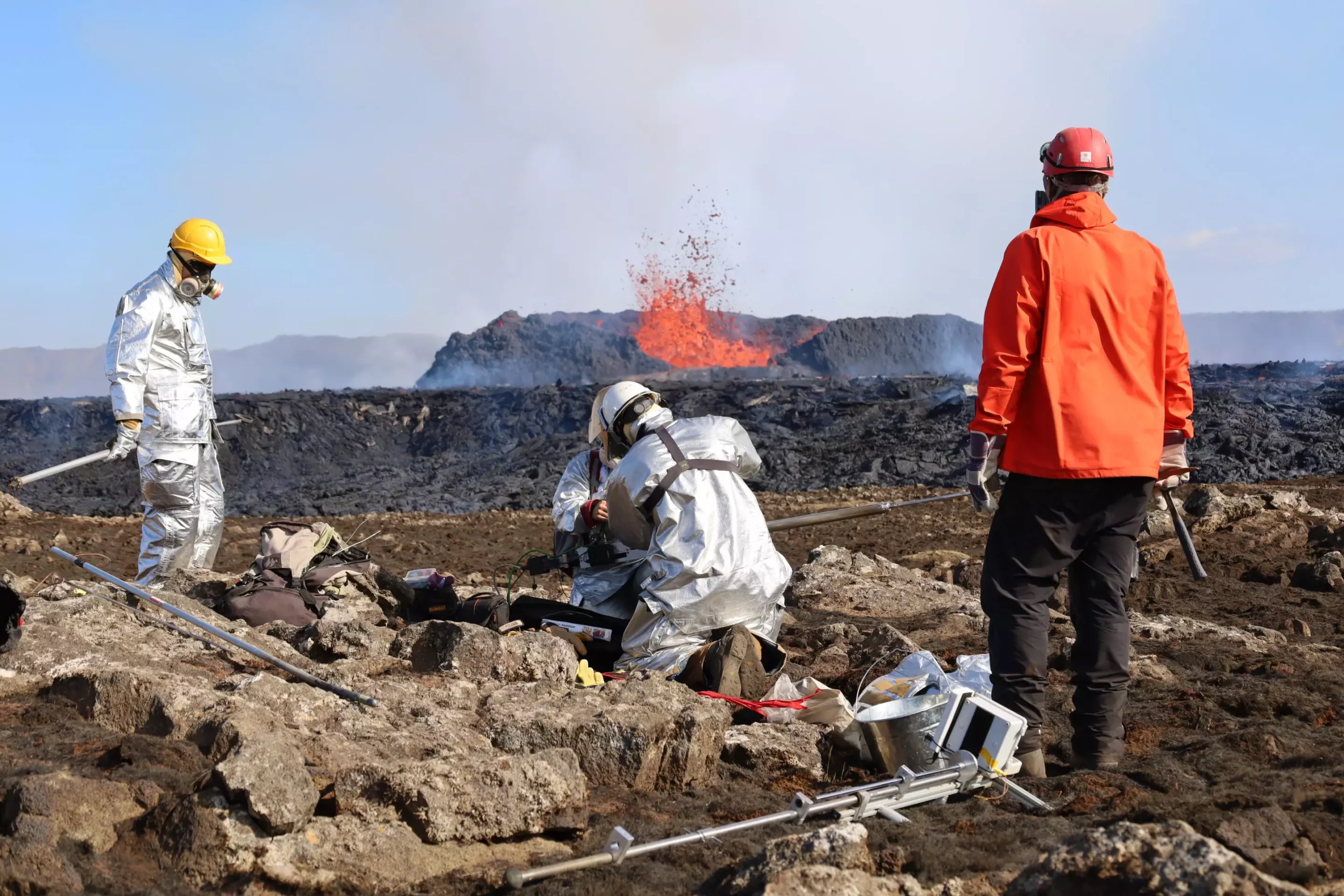Iceland’s Reykjanes Peninsula is currently experiencing ongoing volcanic eruptions, which have the potential to last for years to decades. This poses a significant threat to the region, which is home to 70% of the country’s population, as well as vital infrastructure such as the only international airport and geothermal power plants.
The recent eruptions have already triggered a state of emergency, leading to evacuations of residents and visitors from popular tourist attractions like the Blue Lagoon geothermal spa. The economic disruption caused by these eruptions is concerning, as communities are left uncertain about when they can safely return to their homes.
An international team of scientists has been closely monitoring the volcanic activity in Iceland for the past three years. Through seismic tomography imaging and lava sample analysis, they have revealed important insights into the geological processes driving the eruptions. The researchers predict that the region may continue to experience recurring eruptions for years to come.
One of the key areas of focus for scientists is understanding the magma sources behind the eruptions on the Reykjanes Peninsula. By analyzing isotopic compositions and traces elements in lava samples, researchers have been able to identify shared magma storage zones below the peninsula. This information is crucial for predicting the duration and impact of future eruptions.
While scientists have made significant progress in understanding the volcanic activity in Iceland, they acknowledge the unpredictability of nature. It is challenging to precisely predict how long the volcanic episodes will last and how frequent they will be in the coming years. Nature is known for its irregularities, and volcanic activity is no exception.
Despite the challenges posed by ongoing volcanic eruptions, Iceland’s geological activity also presents a unique opportunity for scientific research. The less volatile and explosive nature of the eruptions allows scientists to approach actively erupting fissures and gather valuable insights into the geological processes. This “natural laboratory” provides valuable information for understanding volcanic activity.
Iceland’s ongoing volcanic eruptions on the Reykjanes Peninsula are not only a threat to the country’s infrastructure and economy but also a unique opportunity for scientific research. By studying the geological processes driving the eruptions, researchers can gain valuable insights into the impacts and predict the future volcanic activity in the region. While the unpredictability of nature poses challenges, it also underscores the need for continued scientific monitoring and research to better understand and prepare for volcanic events in Iceland.


Leave a Reply